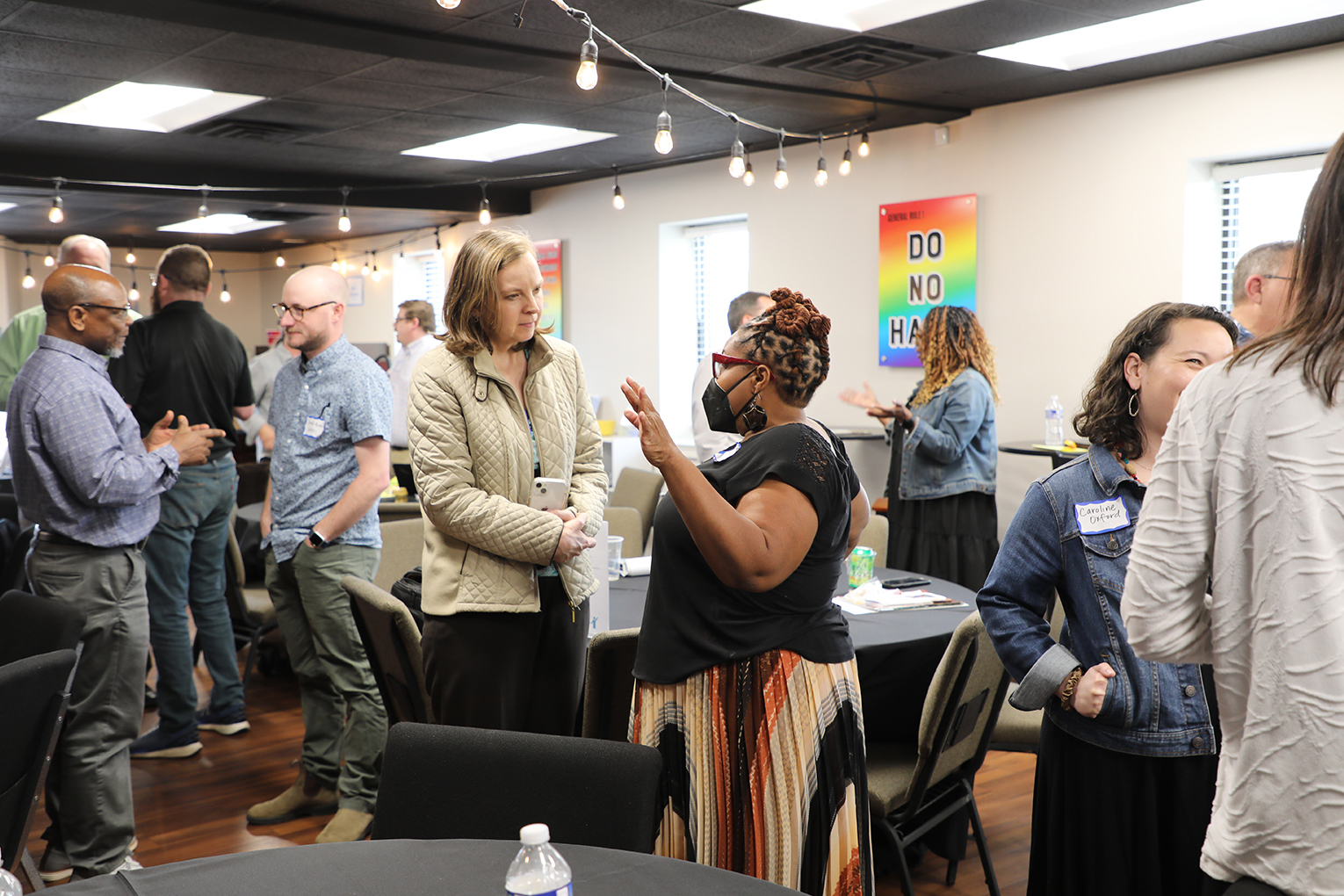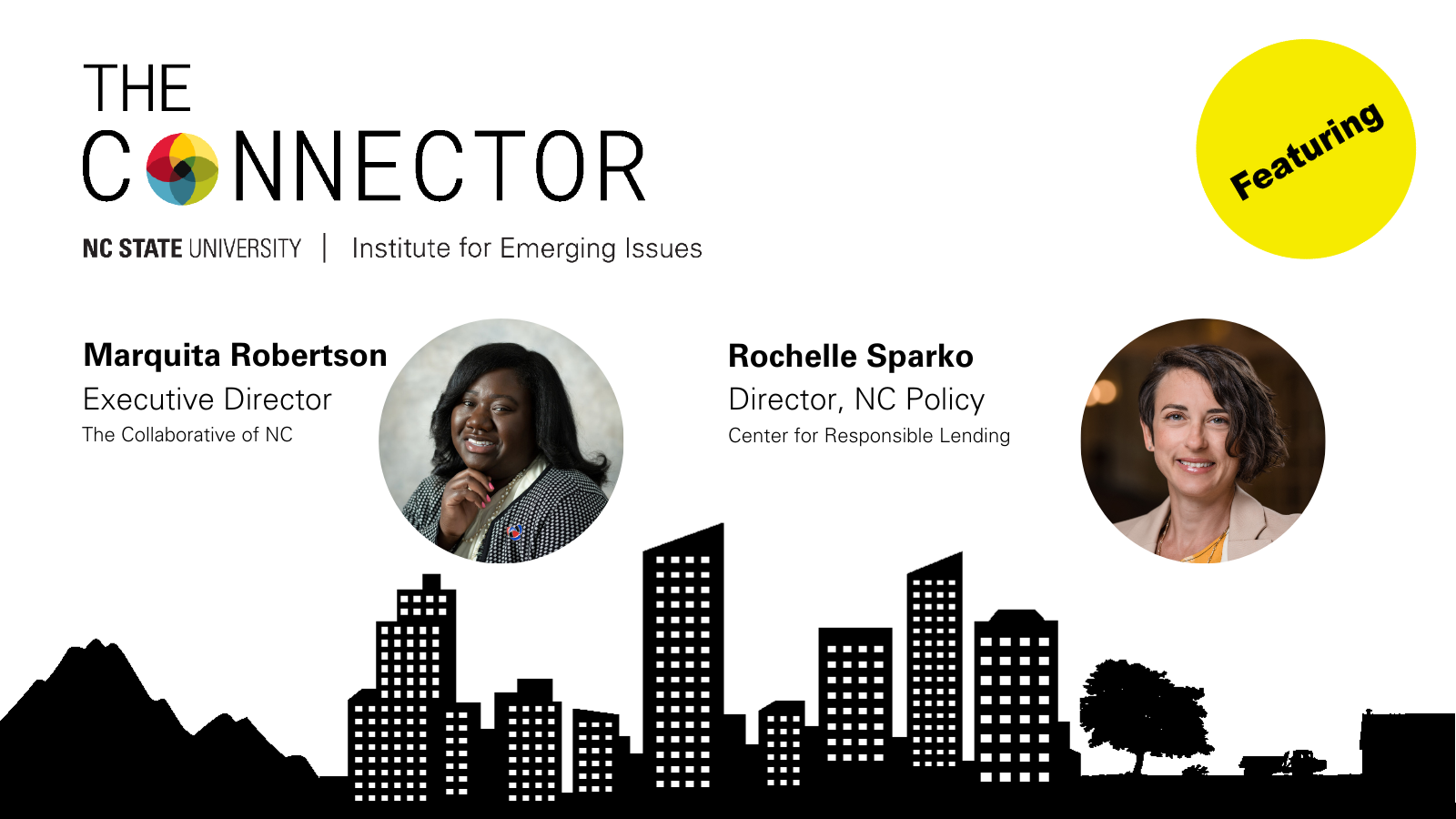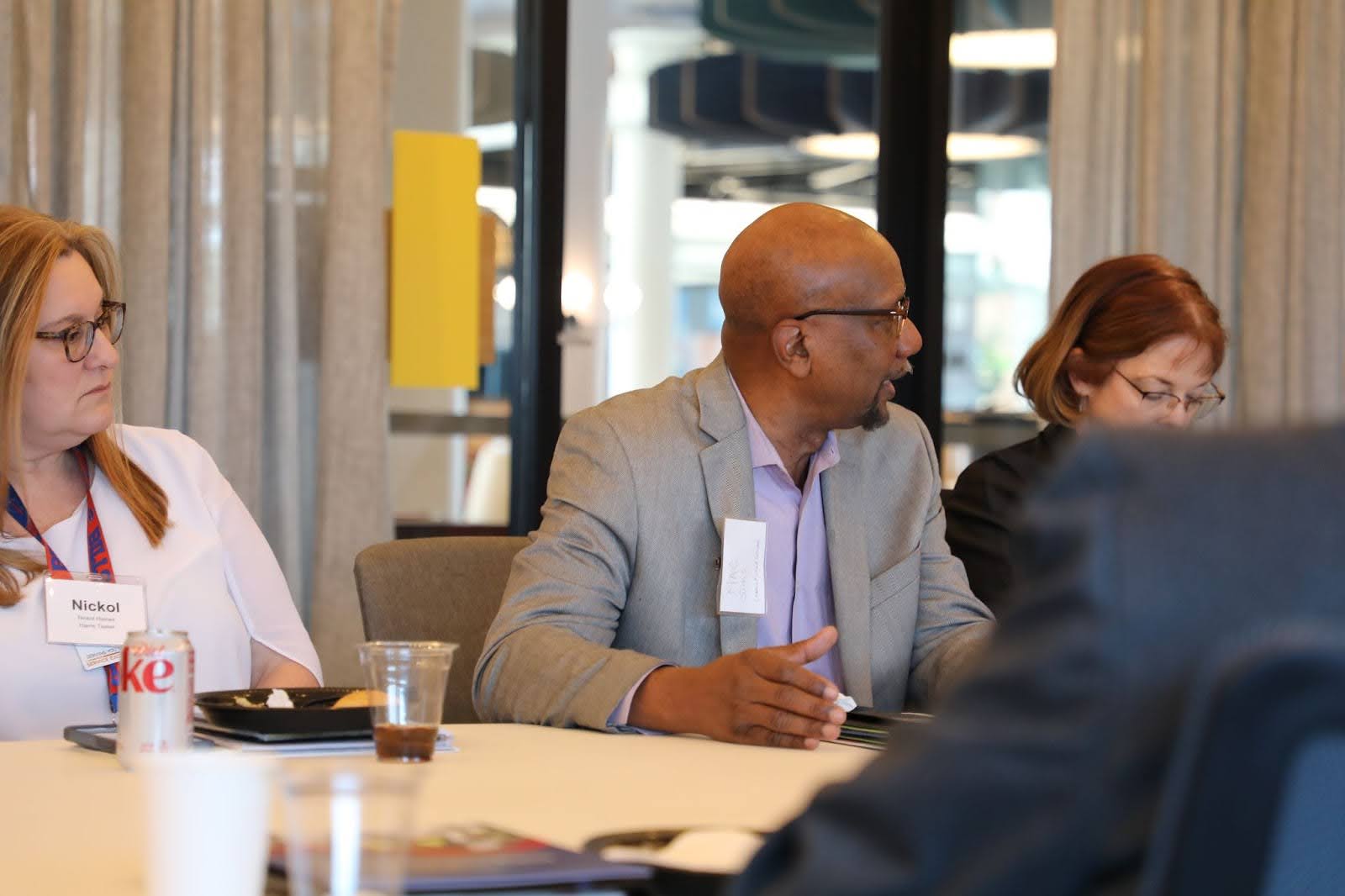Connected Congregations
At IEI’s ReCONNECT to Technological Opportunities Forum in February, over 60 rural faith clergy, laity, and partners gathered to learn about digital inclusion. It’s a new term for most Americans – but our faith leaders were quick to learn.
Digital inclusion is making sure that when people have access to high-speed broadband that they are also able to afford it, understand how to work it, get support, and have devices to connect.
It’s the understatement of 2020 to say this is more important than ever during the COVID-19 pandemic.
Like everyone, congregations across North Carolina had to abruptly change to virtual means of communicating practically overnight. How are faith leaders helping connect their members and community across digital barriers? Here are some ideas from faith leaders around the state:
-
- Free and Low-Cost Internet Subscriptions– Many people in North Carolina have access to at least one internet provider (we realize that doesn’t mean it’s always affordable or consistent) and you can search this map provided by NC’s Office of Broadband to see free or low-cost services being provided in your area due to the pandemic
- Open up your Building’s WiFi– Fast food restaurants, churches, and libraries in rural NC are used to hosting people throughout the year to access free WiFi. Your congregation can be a “Park and Learn” WiFi spot like in Wayne or Wake counties. Some tips:
- Use your building’s main sign to promote free WiFi to passersby
- Put instructions (WiFi name, password) and safety guidelines (“Please don’t leave your car”) on a big sign in your parking lot
- Post on local news sites and neighborhood listservs that your WiFi is available for free to students and those that need it
- Devices Swap– Many people don’t have devices to connect to high-speed internet. Ask a volunteer to start figuring out mutual support- identifying folks that have old or extra tech devices (laptops, smart phones, tablets) and those that need them. People can give them away or let people borrow them until the pandemic subsides. Remember to stay extremely safe when arranging drop off- leaving the device outside someone’s door, sanitizing the device, and going over how to work it over the phone instead of in person.
-
-
- If your congregation has devices to spare, contact local schools or non-profits to see if they could use them! Have a tech-savvy member help wipe personal information off devices before donating.
-
- Tech Support- Groups like the Kramden Institute are hosting free weekly beginners classes to teach people about their devices. As you’re calling congregation members, ask them if they have any tech experience (there’s always people that “get it”!) or having tech issues. Doing a one-to-one pairing allows people to troubleshoot when things go wrong, instead of feeling overwhelmed and isolated by technology issues.
- Live-streaming Resources- The NC United Methodist Conference website has collected live-streaming, pre-recorded, and audio options for services– you don’t have to recreate the wheel!
- Digital, Scattered, and Connected “Orientations”
Atlanta Rabbi Starts an international, multifaith support system for clergy (on FaceBook) during the Coronavirus pandemic
Distributed Church and the New Normal of a Pandemic World
Faith Leaders Address Religious Life in Coronavirus World: 4 Duke leaders share insights
- Digital Spiritual Practices- As many mourn the absence of weekly spiritual gatherings, we’ve heard about some great virtual resources faith leaders are using to stay connected and uplifted like:
-
- North Carolina Council of Churches Daily Prayerful Meditation, Online Worship and Denominational Resources, and Community Involvement Opportunities
- Hosting a Virtual Digital Inclusion Seder
- Weekly Classes from the Islamic Association of Raleigh
- NC Baptists “Reaching Others in an Age of Social Distancing”
- The Hindu Society of North Carolina’s digital events
- The North Carolina Zen Center’s Virtual Weekly Zendo Access
- AME Second Episcopal District Updates and Resources
Many individual faith communities are shifting how they are doing worship and outreach, providing education, services, and assistance, offering community care and mutual aid, as well as building solidarity and community in these times. Share what is happening with faith communities you know, or explore new ones with your friends and neighbors, down the block or online.
What is your congregation doing to help people connect? Let us know! Email Rural Faith Communities Program Manager Kylie Foley at kdfoley@ncsu.edu.
- Categories:


